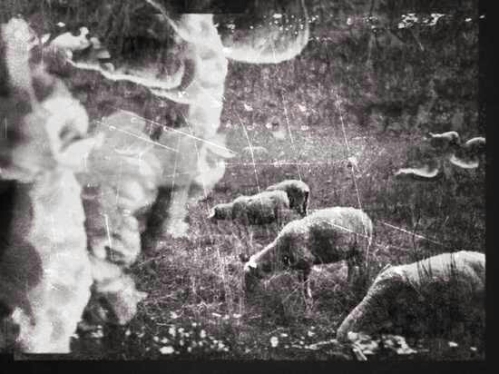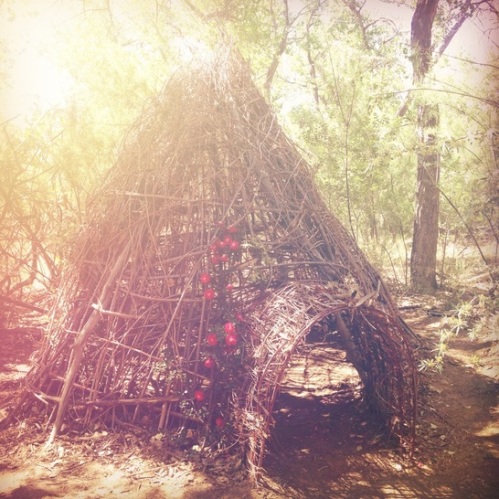This past Spring, while the birds and bees were out buzzing about, I was in a classroom taking an Anatomy and Physiology course. On a particular class, a licensed Acupuncturist, Herbalist and Medical Qigong practitioner came in to talk with us about Chinese Medicine theory, Western Medicine, Acupuncture, Herbology, Nutrition, and very importantly, “the birds and the bees.” In short, she questioned where we stand physiologically and mentally with our own sexuality. Bet you didn’t expect that to be brought up at an Anatomy and Physiology course. Well, neither did I…but it did turn out to be the greatest A&P class I’ve ever taken!
We gathered in a circle to share stories, and watched an enactment between practitioner and client, and seriously played with our wonderment at the birds and the bees. And more specifically, why do we culturally refer to sex as the birds and the bees?
Birds build nests to prepare for their offspring and bees are busy bumbling to all the pretty flowers in the neighborhood, spreading pollen so that plants can reproduce. The magical work of these animals is definitely overlooked if we only work with their nature when we’re educating about sex. Don’t get me wrong, sex is important for our well being physiologically and mentally when we share a healthy outlook on it. I joke around with my friends about the statistics you hear of young men who think about sex every ten seconds. I don’t joke about it in any way that would be shameful, but I just wonder, what if every ten seconds, boys were literally thinking about birds and bees? If this were our reality, I believe the awareness around colony collapse disorder and rapidly disappearing species would be spread around the world so fast, we would have a cure to save all the birds and the bees in one day.
Juliette de Bairacli levy has said, “where bees can live, man can live. With the bees disappearing, this is a warning. Man cannot exist without the bees.”
I recently came across a very special woman who likely thinks about the birds and the bees more often than anyone else; and has transformed her vision into magical, healing action. The woman’s name is Sophia Rose. She is the founder of La Abeja Herbs, which is Spanish for The Honeybee. Sophia is an herbalist, a nomad, an inspiration. This is her completely true story of how she came to find love in the honeybees:
La Abeja was borne out of the passionate devotional love I felt and continue to feel for Honeybees. In 2011 I was completing training and clinical residency at the North American Institute Of Medical Herbalism. At that time I was in the clinic seeing clients a couple days a week and in the midst of writing my thesis, the Magikal + Medicinal Uses of Solomon’s Plume. My greatest joy that year was gathering and crafting all of the wild medicines for the clinic’s apothecary. I felt as though I had truly found my calling. Up until that point in my life, I’d felt that my Soul’s Path had been fairly clear–I’d always known my next step, even if only vaguely. But as my graduation from NAIMH drew near, I felt totaly uncertain as to how I wanted to proceed, as an herbalist or otherwise. One evening, I was alone in my bedroom–high up in the Rocky Mountains–four months into the punishingly windy subzero Winter. I was watching Queen Of the Sun, a movie about colony collapse disorder and the implications of life without bees. I was suddenly overcome with a mix of grief and joy and fervor. Tears streamed from my eyes and I clutched at my breast, gasping. And while I was moved by the film, it wasn’t the reason for my tears. They were, rather, the result of my realization that I was meant to devote myself, totally, to the stewardship of Honeybees.
La Abeja Herbs is currently stewarding the growth and continuation of life for all in many unique places. I would joyfully travel to any one of these places Sophia Rose calls home to meet her and collaborate with the work of La Abeja Herbs. I hope we cross paths soon, though I can’t say where. Honeybees are so footloose, they can’t be pinned onto a map. Again, these are animals which hold up a radical mirror reflection of our own nature. It seems, most of us have forgotten what the birds and the bees really stand for: growth, regeneration, healing and interdependence with all life.
It’s time we listen closer to the softest and sweetest sounds of those creatures who we surely couldn’t live without. You can learn more about the work of La Abeja Herbs here. And you can find more information about how you can help the bees here.
For all of those things in your life that you delight in, and maybe don’t always remember to share your gratitude for having it in your life, thank the birds and the bees. What world would this be without them? What would we think about every ten seconds without them?









